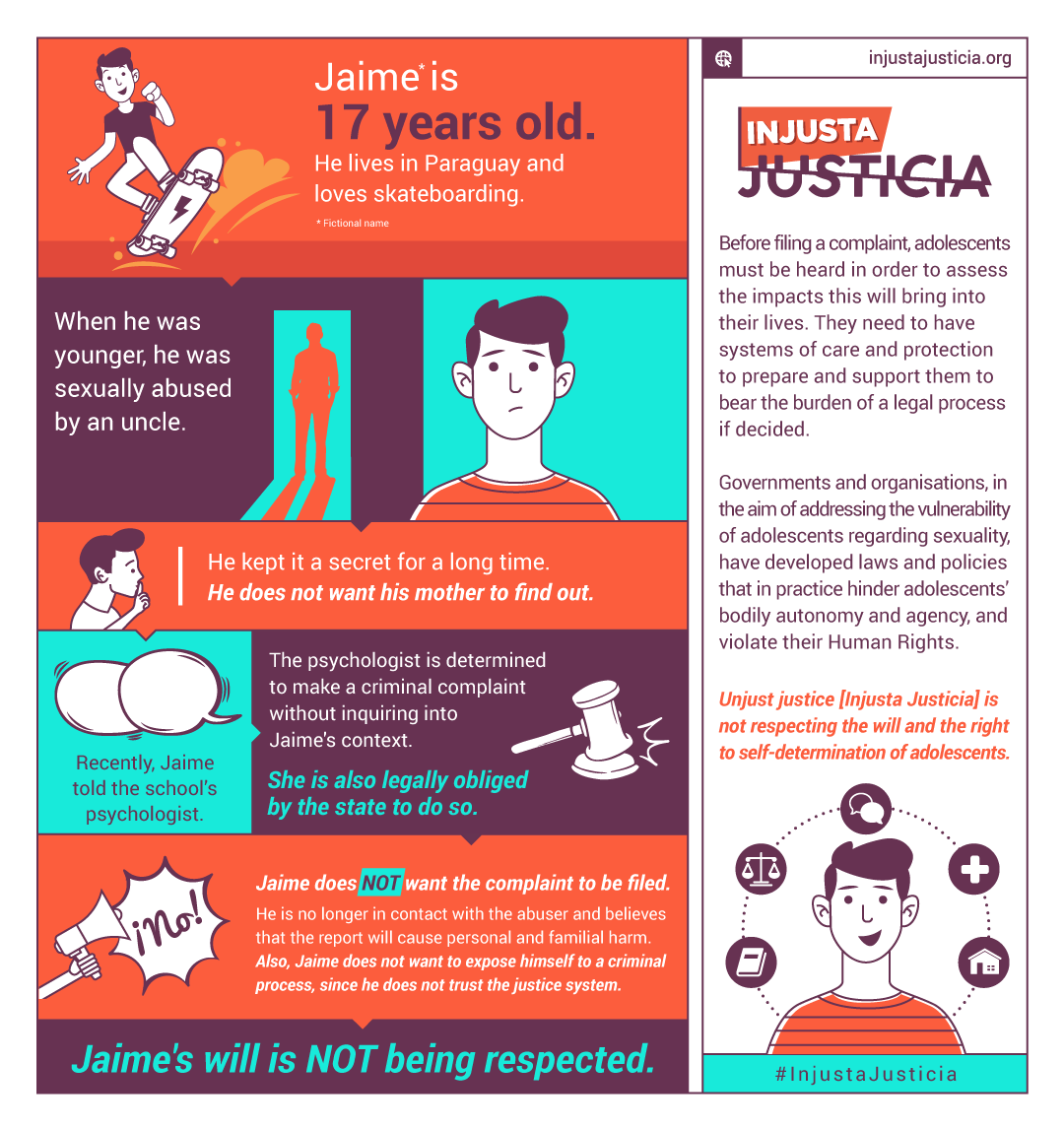Jaime
Click here to get a full description of the infographic.

The Code of Children and Adolescents (Código de la Niñez y la Adolescencia, or CNA for its acronym in Spanish, art. 5) sets forth that it is mandatory to inform on any children and adolescents’ rights violations, particularly for those who have their legal guardianship or are charged with their education and care. This is why the psychologist at Jaime’s school is legally bound to report the abuse he survived.
It is essential that the person filing a complaint has a set of emotional and material resources to go through it. Sometimes, doing so involves great sacrifice, such as pulling away from the community and family and losing financial stability because of the breaking of family bonds, among other complex situations. When a person is not willing to report, the reason could be that they are not emotionally ready to live with the consequences, like the length of the process or the constant revictimization. Furthermore, the impunity and inefficacy of the criminal system of the region makes the process even more complicated and imply a greater emotional load and more obstacles that survivors would often rather avoid.
In the context of children and adolescents, the best interest of the child, as stated in the Convention of the Rights of the Child (Convención sobre los derechos del niño), dictates that children’s rights and wellbeing must be placed above all else. This includes certain rules that, when strictly applied, can do more harm than good. This means that the filing of a complaint cannot go over the wellbeing of a child or adolescent.
- To enable adolescent survivors to file a complaint, they should have access to support and care systems that protect their emotional and physical wellbeing as well as their financial and housing situation.
- States must evaluate the policies that have been drawn up to identify potential unintended effects or consequences in their application. These consequences could have an impact on adolescents’ sexual autonomy and/or the protection of their human, sexual and reproductive rights.
- It is necessary to deepen the dialog between civil society organizations to get them to work together and bolster the protection and exercise of children and adolescents’ progressive autonomy as a result.
The Injusta Justicia seeks to promote reflection on the limits of criminal law and punitivism as a defense strategy for sexual and reproductive rights, particularly those of adolescents. The campaign aims, among other things, to put the unforeseen consequences of the unrestricted application of criminal regulations and the impact this has on the autonomy and lives of adolescents under the spotlight. Injusta Justicia doesn’t have – or presume to have – all the answers but intends to inspire debate and to have the conversations we need as feminists to propose transforming strategies and alternatives focused on the survivors. We invite you to take part in this discussion.
Sexual and reproductive rights policy and regulatory framework in Paraguay:
Policies that could have an impact on the lives of adolescents in the region: